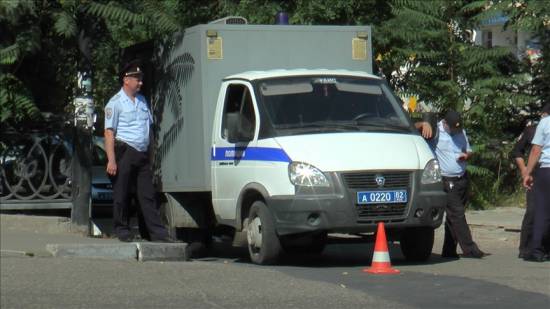The UN secretary-general's office has not been able to visit Crimea after Russian "occupying authorities" denied unfettered access, according to a UN report on Tuesday.
Secretary-General Antonio Guterres' report on the "Situation of human rights in the temporarily occupied Autonomous Republic of Crimea and the city of Sevastopol, Ukraine" was delivered to the UN Human Rights Council.
On the same day, UN Human Rights chief Michelle Bachelet told the Human Rights Council said the "unbearable toll" of the conflict continues to mount.
"With daily killings, widespread destruction, arbitrary detention, and mass displacement, civilians are bearing the brunt of hostilities that seemingly have no end in sight," said Bachelet.
She said that by working closely with the Ukrainian government, over 300 local civil society partners, and international NGOs, the UN is reaching almost 9 million people with essential and life-saving assistance.
In his report, Guterres said: "Given the conditions stipulated by the Russian Federation, the Office of the High Commission for Human Rights was not able to find appropriate modalities to conduct a mission to Crimea in accordance with (a) General Assembly resolution."
A UN mission has worked in Ukraine and monitored Crimea's situation since March 2014, when Russia occupied Crimea, which had been part of Ukraine.
"The report is primarily based on direct interviews with victims of alleged human rights violations in Crimea, which were further verified by multiple sources," said the report.
Access to information
The rights office said media freedoms and access to information in Crimea are adversely affected by Russian laws.
These impose "the status of 'foreign agent' on media that receive funding or other forms of ill-defined 'support' from foreign states or governments, international and foreign organizations, or foreign citizens."
The UN chief's report said Russia curtails dissenting political or alternative views in Crimea.
"In particular, freedom of peaceful assembly was undermined by the blanket requirement of prior authorization by the occupation authorities for any assembly," the report noted.
Freedom of movement
Regarding freedom of movement, cases were documented of individuals unable to enter Crimea despite family connections and humanitarian reasons to travel.
"The applicable exceptions provide no grounds for entry for same-sex couples, which prima facie may violate the prohibition of discrimination," said the report.
In another case, a man born in Crimea but who resided in Kyiv was denied entry to Crimea when he attempted to attend the funeral of his father, who had died of COVID-19-related complications.
During the period under review, Ukraine's parliament adopted a law canceling non-resident taxpayer status for persons originating from Crimea, which the report criticized./aa


